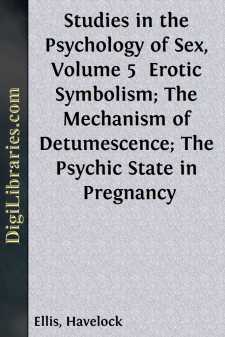Categories
- Antiques & Collectibles 13
- Architecture 36
- Art 48
- Bibles 22
- Biography & Autobiography 815
- Body, Mind & Spirit 144
- Business & Economics 28
- Children's Books 18
- Children's Fiction 14
- Computers 4
- Cooking 94
- Crafts & Hobbies 4
- Drama 346
- Education 58
- Family & Relationships 59
- Fiction 11834
- Games 19
- Gardening 17
- Health & Fitness 34
- History 1378
- House & Home 1
- Humor 147
- Juvenile Fiction 1873
- Juvenile Nonfiction 202
- Language Arts & Disciplines 89
- Law 16
- Literary Collections 686
- Literary Criticism 179
- Mathematics 13
- Medical 41
- Music 40
- Nature 179
- Non-Classifiable 1768
- Performing Arts 7
- Periodicals 1453
- Philosophy 65
- Photography 2
- Poetry 896
- Political Science 203
- Psychology 44
- Reference 154
- Religion 515
- Science 126
- Self-Help 85
- Social Science 83
- Sports & Recreation 34
- Study Aids 3
- Technology & Engineering 59
- Transportation 23
- Travel 463
- True Crime 29
Our website is made possible by displaying online advertisements to our visitors.
Please consider supporting us by disabling your ad blocker.
Impressions and Comments
by: Havelock Ellis
Description:
Excerpt
IMPRESSIONS AND COMMENTS
July 24, 1912.—I looked out from my room about ten o'clock at night. Almost below the open window a young woman was clinging to the flat wall for support, with occasional floundering movements towards the attainment of a firmer balance. In the dim light she seemed decently dressed in black; her handkerchief was in her hand; she had evidently been sick.
Every few moments some one passed by. It was quite clear that she was helpless and distressed. No one turned a glance towards her—except a policeman. He gazed at her searchingly as he passed, but without stopping or speaking; she was drunk, no doubt, but not too obtrusively incapable; he mercifully decided that she was of no immediate professional concern to him. She soon made a more violent effort to gain muscular control of herself, but merely staggered round her own escaping centre of gravity and sank gently on to the pavement in a sitting posture.
Every few moments people continued to pass within a few inches of her—men, women, couples. Unlike the priest and the Levite in the parable, they never turned away, but pursued their straight course with callous rectitude. Not one seemed so much as to see her. In a minute or two, stimulated perhaps by some sense of the impropriety of her position, she rose to her feet again, without much difficulty, and returned to cling to the wall.
A few minutes later I saw a decently-dressed young woman, evidently of the working class, walk quietly, but without an instant's hesitation, straight up to the figure against the wall. (It was what, in Moscow, the first passer-by would have done.) I could hear her speaking gently and kindly, though of what she said I could only catch, "Where do you live?" No answers were audible, and perhaps none were given. But the sweet Samaritan continued speaking gently. At last I heard her say, "Come round the corner," and with only the gentle pressure of a hand on the other's arm she guided her round the corner near which they stood, away from the careless stream of passengers, to recover at leisure. I saw no more.
Our modern civilisation, it is well known, long since transformed "chivalry"; it was once an offer of help to distressed women; it is now exclusively reserved for women who are not distressed and clearly able to help themselves. We have to realise that it can scarcely even be said that our growing urban life, however it fosters what has been called "urbanity," has any equally fostering influence on instinctive mutual helpfulness as an element of that urbanity. We do not even see the helpless people who go to the wall or to the pavement. This is true of men and women alike. But when instinctive helpfulness is manifested it seems most likely to reveal itself in a woman. That is why I would like to give to women all possible opportunities—rights and privileges alike—for social service.
July 27.—A gentle rain was falling, and on this my first day in Paris since the unveiling of the Verlaine monument in the Luxembourg Gardens, immediately after I left Paris last year, I thought there could be no better moment to visit the spot so peculiarly fit to be dedicated to the poet who loved such spots—a "coin exquis" where the rain may fall peacefully among the trees, on his image as once on his heart, and the tender mists enfold him from the harsh world....











